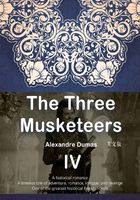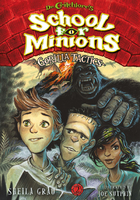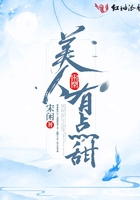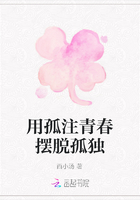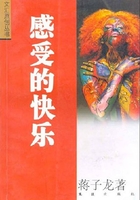Mary Ann Rodman
Farang. My first Thai word. The word Kuhn Noi had taught me, the syllables floating light and flutelike.
This morning, in the school courtyard, "farang" sounds sharp and nasal in Nikki's Midwestern accent.
"It means 'foreigner,' "she says. "It means me and you and anybody else not Thai."
I knew what it meant, but the thought slams me like an algebra pop quiz. I'm not a foreigner.
But I am.
Dad's company has transferred him to Thailand. So here I am. The foreigner. A farang.
I think about my friends, starting their sophomore year, too. A million miles away, back in Atlanta.
"Is Bangkok beautiful? Exotic?" they ask by e-mail.
"Yes. No." It is and it isn't. The images jump around in my head, like those old slides of Europe that my grandparents used to make me watch. Click. Here's Grandpa at the Eiffel Tower. Click. Here's Gramma in front of Big Ben.
With me, it's: Click. Temples, glittering with colored mirror tile. Click. Open sewers. Click. Orchids growing wild on tree trunks. Click. Packs of rabid dogs, wandering the streets.
"It's cool," I lie. It's too complicated to explain, especially on e-mail. E-mail, not IM, because you can't IM somebody who's twelve hours away, in another day of the week.
I don't feel cool at all, this morning, standing in the courtyard of the Bangkok American School, with Nikki, my principal-appointed "angel" this first day. Nikki's face has had the same expression since we met a half hour ago: pained boredom.
"Why don't you show Lauren around before the first bell?" the principal (whose name I've already forgotten) suggested.
Nikki dragged me through miles of empty hallways that all looked alike. After about ten minutes, she said, "OK, so, like, we aren't allowed in the building until first bell. Everybody hangs in the courtyard, if it isn't raining."
That's where we are now. In the courtyard, with about a thousand other kids, milling around. It could be any high school. It could be Atlanta.
"Farang," Nikki repeats. "Thais don't mix with farangs. They keep to themselves."
Nope, not Atlanta.
"They do?" I wave toward a knot of Thai girls in short denim skirts and high platforms. "Then why are they at the American School?"
"They want to go to college in the States." Nikki curls her lip. "Work for American companies. Marry American men."
Nikki's words march through my head, a straight line from high school to marriage. How can she see these things? I can't see past my first class this morning, which my schedule says is World Literature.
"Laura," says Angel Nikki, looking me up and down. Not in a friendly way.
"It's Lauren," I say.
"Sorry, Lauren." Nikki's voice says, "Whatever." "Where do you shop?"
I name a mall store in Atlanta. Wrong answer.
"Everybody here wears Gap," she says.
"Oh. OK. So I'll go to the Gap."
"Farangs can't buy off the rack." Nikki smiles. A nasty smile. "The clothes are made for the locals. And they're all about the size of my little brother. He's ten."
She has a point. The Thai girls high-step by us in their platforms. The shoes make them look tall and storklike, but their bodies are tiny, tiny. Less-than-zero tiny.
I shrug. "So, I can order online."
Nikki shakes her head. "You can't. The custom taxes are more than what you pay for the clothes." She looks pleased to be delivering bad news.
"So where do you buy clothes?" I ask.
"In the States. On furlough." Nikki flickers her fingers as if to say, "Duh, of course."
We won't get furlough until Christmas. I shrink a little more into my "wrong" clothes.
A bell shrills. Nikki and I plunge into a swirling mass of kids shoving their way into the building at the first bell.
I am invisible.
There are invisible kids in every school. Not nerds or misfits or obvious freaks. Just anonymous. The ones in the yearbook I swear I've never seen before. Kids who fade into the walls.
Gap-dressed kids stream by me, pressing me against the wall. My pale, pinky-white skin matches the wall color perfectly. Lauren, the Amazing Wall-Colored Girl!
Nikki dumps me off at World Lit.
"I'll find you for lunch," she says. It sounds like a threat.
At lunchtime, Nikki and I wedge into the food line. I scan the cafeteria. I am the only person my color.
Oh, there are plenty of Caucasians. The ones with permanent perfect tans. The ones Mom predicts will "look like shoe leather when they're forty." Well, maybe, but right now they look hot. Who cares about forty?
They have perfect tans and teeth and everything else. It's like being in the middle of a TV movie about high school, where everybody is supposed to be sixteen, but you know the actors are really thirty. Perfect hair, perfect teeth. Perfect outfits.
The Thai girls especially. Like they're trying to blend in. Look American. Which is weird because all the Thai girls are incredibly gorgeous with honey-colored skin and silky waterfalls of hair.
We move up to the steam tables. "You can get Thai, American, or vegetarian," Nikki yells over clattering trays and four hundred kids talking. I look at the glistening piles of unfamiliar foods. At home, Kuhn Noi makes familiar American food.
"Hurry up," Nikki snaps. "We only have twenty minutes."
I quickly point to the only familiar items in the line, a burger and fries. Nikki and I elbow our way to a table of Perfect American Teens, all named Megan or Christopher.
"So where are you from?" a blond Megan asks me.
"Atlanta." My fries taste weird.
"I mean overseas." The Megan pokes at a plate of Thai noodles. She looks more interested in rearranging her lunch.
"I've never lived overseas before." Peanut oil. The fries were cooked in peanut oil. And the burger is seasoned with lemongrass. The "American" lunch is a big mistake.
"Oh." The Megan divides her noodles into little piles. End of conversation.
The Megans and Christophers are more than happy to tell me where they've lived. Seoul. Sydney. Singapore. None of them has spent much time in the States. They all call it "home," but they've never lived there.
They don't really have a home.
It's a scary thought.
Almost as scary as the rest of the conversation. Lunch reminds me of a TV show I saw back in Atlanta. It was about something called "speed dating." These single people would get together and talk one-on-one for five minutes. Then a timer would go off. Everybody would change partners and talk to somebody else for five minutes. At the end of the evening, they would ask out the people who had been interesting for five minutes.
The Megans and Christophers ask all these questions. A wrong answer, and I'm history.
"Hey, wait a minute!" I want to yell. "Give me a chance." But the questions keep coming. This is the chance.
I see them taking me in. All of me. No-color hair, nothing sort of face, the wrong clothes. Not fat, not thin. Not short, not tall.
Just not.
Suddenly, like someone has turned off a switch, the questions stop.
And the ignoring starts. Conversation shoots over and around me.
I'm out.
"Did you hear what happened to Jordan?" asks a Christopher with spiky blond hair. "Moved to Beijing over the weekend. Didn't even get to say bye."
"Bummer," says another Christopher through a mouthful of fries.
Then I get it. In this world, transfers can happen over the weekend. People decide who you are in a twenty-minute lunch.
I am doomed.
When I come home from school, Kuhn Noi is in the kitchen, chopping mangoes for a fruit salad.
"Sawasdee ka, Kuhn Lauren," she says. "Sawasdee" is an all-purpose greeting, just as "Kuhn" is a title of respect tacked on before names.
Kuhn Noi hands me a piece of mango.
"Kop juhn ka," I say. "Thank you," "hello," and "foreigner" are my entire Thai vocabulary.
I suck the juice from the mango as I watch Kuhn Noi's knife flash in the afternoon sunlight.
I think about how Mom freaked when she learned that not only were we getting a housekeeper, but that she would live in the maid's room behind the kitchen.
"I can do my own housekeeping, thank you," Mom insisted. "I don't want some strange woman living in my apartment."
"Most Thais don't speak English," said Dad. "And Thai is almost impossible for an adult to learn. You will need someone to grocery shop for you."
"I can't buy my own food?" Mom looked at Dad like he'd lost his mind.
"Produce is bought from the street market. And even if you could speak Thai well enough to haggle, the vendors tend to have two prices. One for Thais and one for foreigners."
So Kuhn Noi, a little walnut of a woman, who could be any age between twenty and death, came to live in the closet behind the kitchen. Only her eyes tell me that she is far older than she looks. Her eyes glow like the burnished mahogany walls of the apartment. Wise, ancient eyes.
Kuhn Noi is my best friend.
"More mango?" asks Kuhn Noi. I take another sliver from her elegant brown fingers.
According to other farangs, you should not be friendly with "the servants."
"They won't respect you," the farangs say. "They will take advantage."
But Kuhn Noi isn't like that. For one thing, she is much older than the hill country nannies I see at the pool or park. They are sturdy and round faced, with long braids and gap-toothed smiles, and they don't speak English.
Kuhn Noi is small, birdlike, and hides her hair under a silk scarf wound around her head. She also speaks excellent English.
"I work for many American," she tells me. "They teach me English. Americans have good heart."
For Kuhn Noi, everyone has either a bad heart or a good heart.
The kitchen is the center of Kuhn Noi's world. After homework and supper, I go there to talk to her. When the dishes are done and the countertops clean, this is the maid's living room. Sometimes, late at night, I hear the high-pitched chatter of other maids.
"We talk about our madams," says Kuhn Noi when I ask. The maids call their female employers "madam."
Kuhn Noi files her tiny almond-shaped nails. Her hands are wrinkled and rough from endless hot-water scrubbings of floors and windows and dishes. But that doesn't stop her nightly manicure.
"Prani, from fourth floor, she quit her madam. She go home to vote and not come back."
"Why?" I ask.
"Her madam fat. She lose face working for a fat woman."
For a minute, I think Kuhn Noi is kidding. But Thais do not make that kind of joke. I know Prani's madam. She's a little big in the butt, but she sure isn't fat.
"The maids, they say, 'Noi, you work for fat woman.' " Kuhn Noi carefully brushes on clear nail polish.
I listen, fascinated. Horrified. Is this how the Thais see us? Mom is no hot babe, but she's not supposed to be. She's a mom!
"But I say, 'Yes, madam fat. But she has whitest skin in whole building.' " Kuhn Noi splays her newly polished fingers on a worn-out towel to dry. " 'And a good heart, too.' "
I look down at my own not-so-skinny white arms. Kuhn Noi catches me.
"You have pretty white skin, like madam. You take care. No go out in sun without sunblock. You no want to be like Kuhn Noi." She reaches into her flowered silk makeup bag and pulls out a blue plastic jar with fancy gold Thai script on the label. A very white-skinned Thai woman in a slinky dress lounges across the lettering.
"What's that?" I ask as Kuhn Noi dips the ends of her fingers into the pink stuff and rubs it into the backs of her hands.
"Bleach cream." She slathers it from wrist to elbow and massages it in. "White skin, very beautiful." She starts on her face.
Back in Atlanta, the drugstores sold bleach creams, too. Only the women on those jars were light-skinned black women. I always thought it was pathetic that someone would want to change their skin color.
I decide that Kuhn Noi only wants to turn her skin to the buttercream color of my Thai classmates. I can understand that. I'd like to be a slightly different color myself. Only darker.
Still, it's sad. After all, Kuhn Noi has a "good heart." But good hearts don't show the way that light skin and long shiny hair do.
Another day, another lunch with the Megans. No one speaks to me. I am invisible. The Megans talk about plastic surgery.
"It is sooo cheap here," says a long-haired Megan. "Mama absolutely promised I could have my nose done during winter break."
Why? Her nose looks fine to me.
"Well, don't go to that doctor Ashley went to," says Nikki. "She looks totally worse."
"What Ashley needs is a head transplant," says the Megan.
They all laugh. I take my tray to the garbage chute. Another burst of laughter as I pass the table. What are the Megans saying about me?
I have ten minutes before class. In the restroom, I hear the same sounds I heard in the bathroom of my old school after lunch. Girls throwing up. Cough. Gag. Spit. Flush. It sounds like every stall has a girl with a finger down her throat.
I am scared in this country. Not of the country. But of the farangs.
I try to find a place at the mirror, but I have to wait. Girls lip-glossing, hair-brushing, or just looking. Looking for what? What do they see?
Finally, it's my turn at the mirror.
Next to me, a Thai girl tosses a pouch purse the size of a laundry bag onto the narrow shelf beneath the mirror. Someone calls to her in Thai. She turns quickly, knocking her purse to the floor with a crunchy whack. Pens and combs and lip gloss roll from the purse's mouth.
And a jar. A blue plastic jar with a whiteskinned Thai babe on the label. The jar lands at my feet.
Kuhn Noi's jar.
The slide show runs in my head. A foreign land. Click. American girls, throwing up. Click. Thai girls, dressed like American girls. Click. A woman with a good heart. Click. A jar of bleach cream.
I hand the girl the jar.
"Kop juhn ka," she mumbles, but her eyes are sad and envious. Of me.
The girl with the wall-colored skin.
I am sad too, for this girl—this girl with honey skin and silky hair and graceful hands.
Here in the land of beauty, we are all farangs.



